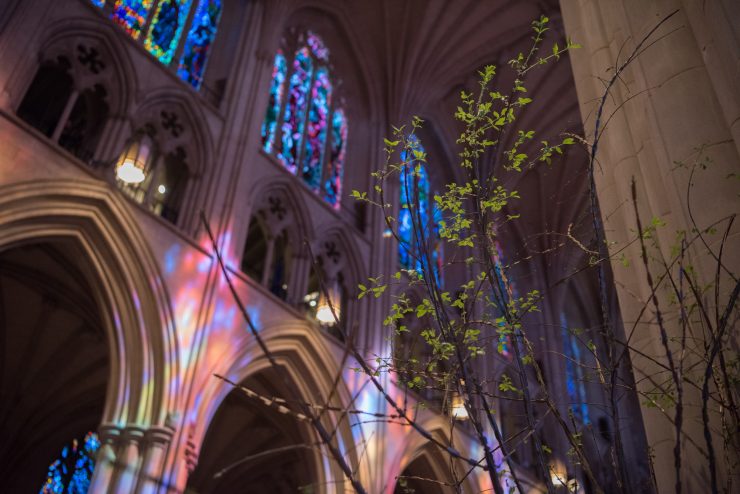Strike Root and Flourish

Hosea 14:1-9
Return, O Israel, to the Lord your God,
for you have stumbled because of your iniquity.
Take words with you
and return to the Lord;
say to him,
“Take away all guilt;
accept that which is good,
and we will offer
the fruit of our lips.
Assyria shall not save us;
we will not ride upon horses;
we will say no more, ‘Our God,’
to the work of our hands.
In you the orphan finds mercy.”
I will heal their disloyalty;
I will love them freely,
for my anger has turned from them.
I will be like the dew to Israel;
he shall blossom like the lily;
he shall strike root like the forests of Lebanon.
His shoots shall spread out;
his beauty shall be like the olive tree
and his fragrance like that of Lebanon.
They shall again live beneath my shadow;
they shall flourish as a garden;
they shall blossom like the vine;
their fragrance shall be like the wine of Lebanon.
O Ephraim, what have I to do with idols?
It is I who answer and look after you.
I am like an evergreen cypress;
your fruit comes from me.
Those who are wise understand these things;
those who are discerning know them.
For the ways of the Lord are right,
and the upright walk in them,
but transgressors stumble in them.
Like many of our Old Testament prophets, Hosea rises up to call the Israelite people back to God. Today’s passage opens with Hosea calling the Israelites to turn away from their idols and turn back to God.
And then God speaks. God tells the Israelites that her anger is spent, and like a loving parent, she wants her children close. God envisions a new future for the Israelites—a future of beauty, rootedness, and abundance.
Lent evokes metaphors of gardening. Ash Wednesday begins with dust—a reminder that we were fashioned from the very earth and part of a cosmic cycle of life and death. In Hosea, God tells the Israelites they will be like the mighty forests of Lebanon, with roots that go deep and wide, able to draw nourishment deep from the earth and provide stability in the storm.
One spring I fancied myself a gardener. I cleared a patch of soil, tilled and hoed, and added nutrients for growth.
Inside, I started dozens of little seedlings, and after sprouting indoors, I started taking them outside for exposure to the elements. Gardeners call this “hardening” the seedlings. Exposing them to the winds and rain before they are planted to ensure they build the strength needed to survive in the soil.
Contrary to the name itself, hardening provides more than just strength to plants—it teaches them flexibility; to bend to what they encounter rather than break. If the soil is prepared so their roots grow deep, and if their stalks have had practice weathering the storm, they will grow and flourish.
It takes work for plants to achieve the right balance of roots, strength, and flexibility, and it takes work for us to do so as well. Each millimeter our roots grow provides that much more stability. Each storm that we weather, gives us that much more flexibility. Each sunrise gives us a new chance to flourish.
Friends, in these days of Lent, you are invited to strike root, to live in God’s shadow, and to flourish like a garden even as the storms of life swirl around. Amen.
prayer
The idols have ears but do not hear…
so unlike you, for all your hearing…
so like us, ears but do not hear.
You have endlessly summoned us: shema,
listen,
listen up,
pay attention,
heed,
obey,
turn…
We mostly do not… in our narcissism,
in our recalcitrance,
in our departure from you.
So we pray for ears, open, unwaxed,
attentive, circumcised.
Call us by name … so that we know,
Call us to you … so that we live,
Call us into the world … so that we care,
Call us to risk … so that we trust
beyond ourselves.
You speak / we listen / and comes life,
Abundant,
Beyond all that we ask or think…
Our ears to hear your word of life.
Amen.
—From Awed to Heaven, Rooted in Earth: Prayers of Walter Brueggemann p.53